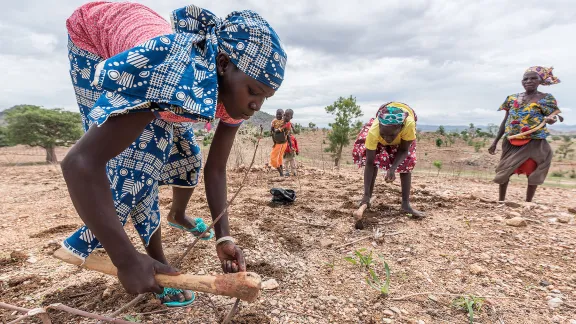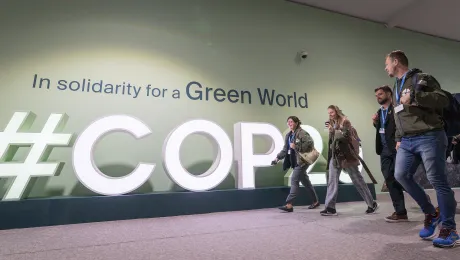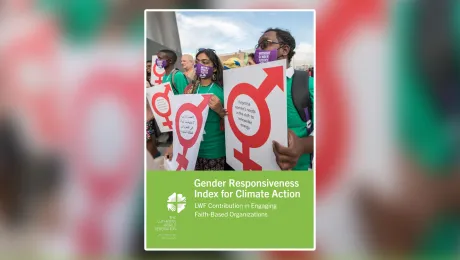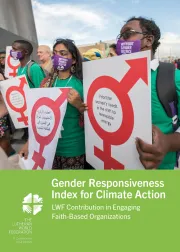
LWFs accreditation as observer to the UNEP Assembly provides a significant opportunity to channel the voices of those people most affected by environmental problems caused by climate change. The photo shows refugee women sowing groundnut near the Minawao camp for Nigerian refugees in Cameroon. Photo: LWF/Albin Hillert
LWF granted observer status at UN Environment Programme
(LWI) - The Lutheran World Federation (LWF) has been granted accreditation as an observer to the governing body of the United Nations Environment Programme (UNEP).
Having the LWF with its member churches that represent more than 75 million people worldwide accredited to UNEP is a “major step towards uniting world religions to care for earth”, says Iyad Abumoghli, Director of UNEP’s Faith for Earth Initiative. “Along with the already 43 accredited faith-based organizations, LWF will add a powerful voice to integrate ethical and faith-based value to our environmental work.”
The Faith for Earth Initiative of UNEP aims at strengthening the voices of faith leaders and faith-based organizations at policy making platforms. The United Nations Environment Assembly is seen as the World Environment Parliament where environmental leaders of the world meet and adopt decisions and resolutions that impact global environmental governance.
Contributing from a local to global perspective
“LWF is very committed to contributing to UNEPs policy decisions from a local to a global perspective,” says Elena Cedillo, Program Executive for Climate Justice. “Our aim is to channel the voices of the people most affected by environmental problems caused by climate change.”
“Churches and faith-based organization all over the world have the potential to make a difference,” Cedillo is convinced. “We need to work together and unite our voices with others to nurture the gift of life and God’s creation in all of the earth’s ecosystems as well as the soil, air and water.”
Accreditation to the United Nations Environment Assembly of UNEP provides non-governmental organizations with observer status to the Assembly and its subsidiary bodies. Accredited organizations can participate in regional meetings in preparation for the UNEP Assembly, to contribute in the preparation of statements, to receive unedited working documents and to submit written contributions to these unedited working documents.
During the session of the Environment Assembly, accredited organizations can attend the plenary sessions of the Committee of the Whole and the Ministerial Consultations as observers and to exchange views and interact with Governments present; circulate written statements to governments, in the form of information documents through the UNEP secretariat; and make oral statements during the discussions of the United Nations Environmental Assembly of UNEP.


